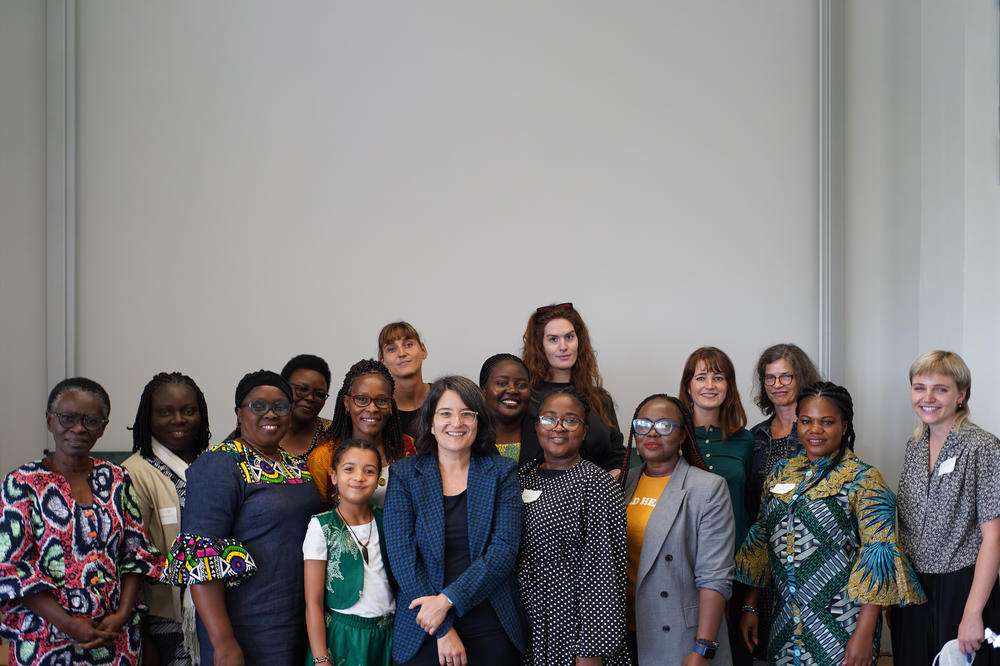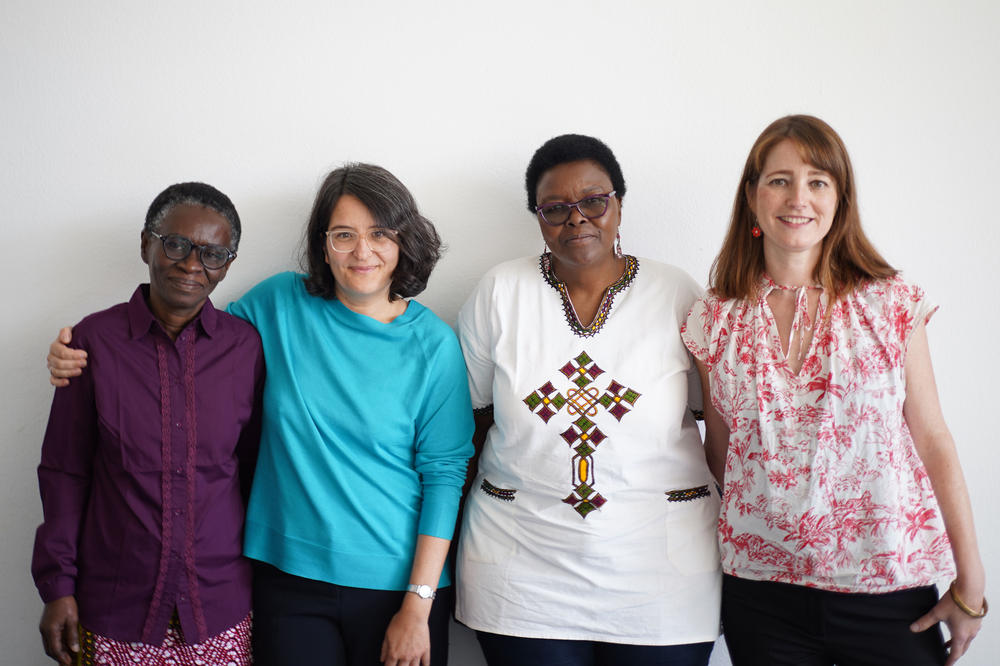Working Together for Equal Opportunities
Researchers from Freie Universität, University of Cape Coast, and Kenyatta University have joined forces to develop measures promoting equal opportunities at universities
Oct 25, 2022
Project participants summarized their findings and put forth their plans for the future as part of a workshop that took place at the end of August.
Image Credit: Rakaia El-Kasaby
How can we promote gender equity at universities? This is a question that a team of German, Ghanaian, and Kenyan equal opportunities representatives and researchers are addressing as part of a project. Since 2019, representatives from Freie Universität and University of Cape Coast (UCC, Ghana) have been working on a joint project entitled “Equal Opportunities in Higher Education,” with Kenyatta University (KU, Kenya) joining the project in 2021. Known as “EQUIP,” the project is funded by the German Academic Exchange Service (DAAD) and the German Federal Ministry for Economic Cooperation and Development. The project will be concluded at the end of the year. A one-week workshop held at Freie Universität served as an opportunity for participants to present the results of the project and outline plans for the future.
When it comes to gender equity and equality in general, the focus is often on women. And rightfully so, claims specialist in religious and cultural studies Dr. Pacificah Florence Okemwa. “Of course, men also struggle with issues such as stereotypes and gender discrimination. They are also subject to sexual violence. However, we do see that, structurally, women are affected by these issues on a larger scale,” she explains.
From left to right: Akua Opokua Britwum, Gülay Çağlar, Pacificah Florence Okemwa, and Wendy Stollberg
Image Credit: Rakaia El-Kasaby
Pacificah Florence Okemwa works at Kenyatta University’s Department of Gender and Development Studies in Kenya. Together with researchers from Kenyatta University, Freie Universität Berlin, and University of Cape Coast, Dr. Okemwa has developed a series of measures for promoting equal opportunities at universities as part of the EQUIP project.
“Train the Trainers, Spread the Message”
“Our main aim was to provide a way in which to embed the many good ideas and approaches to the issue within university structures,” explains social scientist Professor Akua Opokua Britwum. Professor Britwum is a researcher in the field of gender and labor studies at University of Cape Coast.
Part of the project involved developing a training program for equal opportunities advocates at UCC. The program intends to equip these advocates with the skills to train employees from UCC and other universities in the region to become advocates themselves. This “train the trainers” approach aims to cement UCC’s position as a knowledge hub for gender equality in Ghana and beyond, as well as to establish UCC as a leading institution for training equal opportunities advocates.
Since 2010, Freie Universität has offered a similar training program: FUTURA is aimed at equal opportunities representatives based at universities and served as a model for the program at UCC. However, “We can’t simply transfer the gender equity policies that we follow here in Germany to universities in Ghana or Kenya and apply them in an identical manner,” explains Gülay Çağlar, project leader and professor at Freie Universität’s Otto Suhr Institute of Political Science.
A further result of the project is a manual created by UCC representatives and the Chief Gender Equality Officer team at Freie Universität Berlin. The handbook will serve as a resource for both institutions. Aimed at trainers taking part in the training program, it explains the modules in terms of their content, learning objectives, and methods.
Gender discrimination is everywhere, but it is dealt with differently from country to country. “For example, I think that Kenya talks about homosexuality very openly. This is something I would like to see in Ghana as well,” says Akua Opokua Britwum. She was pleasantly surprised to discover that Germany has introduced legislative measures for more equity.
What’s Next?
“Our gender equity work focuses very much on our universities. On the other hand, KU and UCC play an active role in schools, introducing younger people to issues of gender equity through a range of projects”, says Wendy Stollberg, specialist within the Chief Gender Equality Officer team at Freie Universität and project coordinator for FUTURA. This is an area in which Freie Universität could be more active and take inspiration from its partner universities in Africa. “After all, gender discrimination doesn’t just begin at university.”
Furthermore, speaking exclusively of “men” and “women” when it comes to including all genders is in itself problematic. “Gender equity is a very complex issue,” says Çağlar. For this reason, aspects of transgender, intersex, and non-binary gender identities will also be considered more closely in the future.
The EQUIP project will soon be coming to an end. Does this mean that those involved will also be concluding their efforts? “By no means! We have already made plans for more collaborative work, for example, conferences and joint research projects,” says Çağlar. “Everyone who took part in EQUIP was passionate about the topic. We want to use that to keep the momentum going.”
This article originally appeared in German on October 14, 2022, in campus.leben, the online magazine of Freie Universität Berlin.


